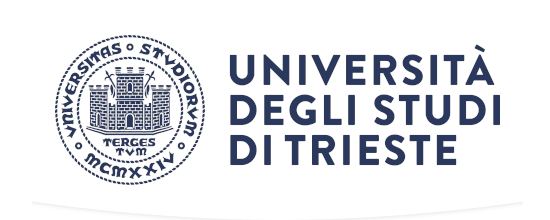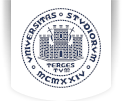The Master's Degree Course (CdSM) in Electrical Energy and Systems Engineering has the fundamental objective of preparing graduates with high skills in the fields of electrical engineering and systems engineering (automatic), but also in related fields which, by providing a multidisciplinary engineering vocation and a broad cultural scope, overall allow them to cover professional roles with high scientific, technical and managerial qualifications.
The CdSM in Electrical Energy and Systems Engineering is divided into curricula. The training path is set up respecting a substantial unity recognized by the close interaction at a scientific and applicative level between the disciplinary areas of the curricula, although they nevertheless allow the training path to be diversified by deepening qualifying aspects in specific cultural sectors that include groups of topics relating to: 1) the production, transport, storage and management of electrical energy; 2) the conversion and use of electrical energy; 3) modeling, analysis and management of physical reality with a systems approach.
The course has the following OBJECTIVES... Given the breadth of the topics in common and the close interconnection between the specific ones of the curricula, many objectives are common. The description will highlight the diversifications from time to time. Graduates in Electrical Energy and Systems Engineering have a preparation based on methodological aspects not separated from the more applicative ones. The common objectives pursued by the training offer are:
- in-depth knowledge of the technical-scientific aspects of mathematics, physics and other basic sciences and the ability to use this knowledge to interpret and describe complex engineering problems or those that require an interdisciplinary approach;
- knowledge of the theoretical-scientific aspects of engineering, both general and, in greater depth, of those of electrical engineering and systems engineering (automation), in which areas the ability to identify, formulate and solve, also with innovative procedures and techniques, complex problems or those requiring an interdisciplinary approach is developed; • ability to conceive, plan, design and manage complex and/or innovative systems, processes and services;
- ability to conceive, design and manage highly complex experiments and to interpret and summarise the results obtained; • ability to conduct one's activities in compliance with professional ethics;
- ability to use fluently, in written and oral form, at least one language of the European Union, in addition to Italian, also with reference to disciplinary lexicons.
Furthermore, depending on the curricular path, the following additional alternative objectives are pursued:
- the ability to manage, control and verify the sources and flow of electrical energy in electrical equipment in the main industrial, transport and service application sectors, supported by knowledge in the field of business organization (business culture);
- the ability to conceive and design electrical equipment with traditional techniques and/or using specialized calculation codes; to formulate and conduct verification and certification tests on electrical equipment and to use advanced development systems for the creation of control algorithms for electrical equipment (in particular, electronic power converters and electric drives);
- the ability to design control systems that meet the requirements of optimality and robustness with respect to model uncertainties, according to modern paradigms of control theory; knowledge of methodologies and techniques for identifying dynamic systems on the basis of experimental data, creating control systems capable of adapting to changes in working and/or environmental conditions.
STRUCTURE OF THE COURSE
To achieve these goals, the training activities of the Degree Course in Electrical Energy and Systems Engineering are organized in such a way as to ensure that students have an adequate mastery of general scientific methods and contents, as well as the acquisition of specific professional knowledge, in the disciplinary areas characterizing electrical engineering and systems engineering (automation), the preparation is also enriched and completed by integrating it with knowledge in similar disciplinary areas to give it an adequate multidisciplinary approach.
The training path:
- plans to use learning processes and tools characterized by a methodological approach with a rigorous scientific approach not separated from the technological one;
- plans to provide operational tools for the design and development of electrical machines and equipment, components and systems for the production, transformation, distribution and use of energy and for industrial automation;
- also plans to provide operational tools for the evaluation, use and maintenance of electrical components and systems and for the automation of continuous, batch or manufacturing processes;
- finally, plans to adequately consider the problems of logistics, company organization and management control.
These skills, abilities and cultural contents are obtained by building a general training path that includes teaching in the sectors characterizing electrical engineering and automatic engineering aimed at providing tools for the analysis and modeling of complex systems aimed at the design of electrical equipment and automatic control systems, as well as tools for the study of performance with simulation techniques. The training is completed by providing teachings in the fields of interdisciplinary engineering (such as: computer science, electronics, mechanics, management, materials, economics, etc.). In particular, the characterizing teachings deal with topics included in the areas of electronic power converters, electrical machines, electrical drives, electrical systems, electrical measurements, technologies and materials used in electrical equipment and also the theory of systems, automation and control (these latter formally belong to the similar sectors, although they nevertheless assume characterizing relevance in this Degree Course and therefore a portion of them has been made mandatory in the teaching regulations).
Furthermore, in a diversified manner for the specific training paths, characterizing and similar teachings are proposed, collected in groups of SSDs in line with the cultural contents that are intended to be provided:
- teachings aimed at the study of electrical systems for the production and transport of electrical energy, the regulation and control in real time with electronic systems of the flow of energy and its economic management, the study of renewable and/or sustainable energy sources, applications in industry, transport and services;
- teachings aimed at the electromechanical design of electrical machines and its optimization also supported by methodologies that make use of numerical simulation, the design and implementation of electronic systems for the digital control of electric drives, the application of innovative materials, traditional and innovative diagnostics on a statistical basis;
- teachings aimed at industrial automation that makes use of innovative technologies, the analysis and synthesis of optimal and robust control systems, the identification of systems and adaptive control, the modeling of real systems and their management.
In order to achieve the following PROFESSIONAL DESTINATIONS, the CdSM aims to develop in students the ability to work in coordinated groups, assuming responsibility for direction and coordination, the critical skills to identify the most suitable methodologies to address new and/or complex technical problems and to evaluate the reliability of the results achieved, the ability to continuously update and improve their knowledge and skills from a technical, operational and organizational point of view, the ability to frame the consequences of technical choices in a broader economic, social and environmental context. To this end, the course promotes constant interaction with the world of work in the electrical and automation fields through the organization of conferences and seminars, and the carrying out of internships in companies generally aimed at developing degree theses. In the CdSM, the thesis has the aim of applying the knowledge acquired, completing it and deepening it also in the context of innovative design and scientific themes. The related training is therefore oriented towards the creation of professional figures who are immediately recognizable but at the same time versatile, in possession of a solid scientific and technical culture in the fields of electrical engineering and automation and systems engineering, but which also ranges in similar fields, to provide as a whole that multidisciplinary approach capable of facilitating entry into the world of work with particular reference to sectors aimed at advanced design and innovation.


